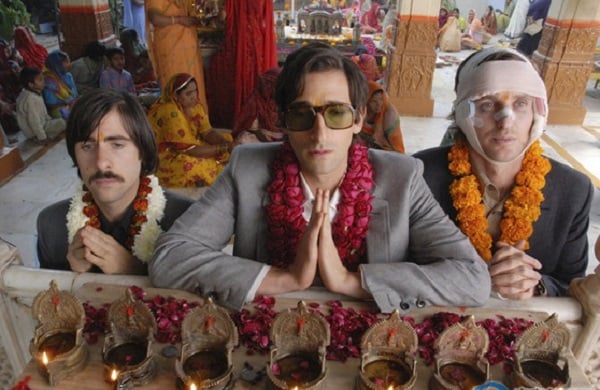Spirituality has become a trendy term.
We see it being casually thrown in to conversations around lunch tables, coffee tables, dinner parties, and even in school yards amongst new mothers who “accidentally” turned their gaze to higher pursuits when they knew they were expecting.
We hear people saying they want to “become” spiritual, “be” spiritual, “do” spiritual things. I even caught a friend the other day bragging about how someone had pointed out how “amazingly spiritual” she was. What does this even mean?
Is spirituality something to show off now? Is it turning into the next hip thing? Or, more appropriately, the current hip thing, about to be displayed in an Urban Outfitters window as a slogan for their summer collection? Are we, with our Western ways, at risk of trivializing, fragmenting, and ultimately misinterpreting a concept that, if properly internalised, could add so much to our lives?
I don’t know the answer to this.
What I do know is expressions like the aforementioned are themselves against the very core of spirituality, and the frequency with which we’re throwing them around, in turn, clearly shows that the proportion of us who talk about spirituality does not equal the number of us who actually know what we are talking about.
How do we differentiate then? How can we distinguish between what is true and what is a byproduct of the ego? How do we find out who and what to trust? Which spiritual gurus? Books? Articles?
I believe, as in with everything in life, the best way to discern if something is authentic is by using our instinct and intuition. However, there can come a time (or many times in my experience) when neither are functioning at their best and, as such, we become misguided. For this reason, I have given this subject quite a bit of thought and (hopefully) managed to pin down a few characteristics of authenticity that remain present throughout any true spiritual insight:
1. Spirituality is not linked to any specific activity or hobby.
There are tools like yoga, meditation, or Reiki (to name a few) that we use to develop our spirituality. However, spirituality is a quality of our existence that is present in all areas of our lives.
Depending on which stage we are at and also on our particular needs at a particular moment, we engage in activities that make us feel more connected. Sometimes, we might find a walk in the park, a conversation with a friend, or a night out with people we hold dear to us more enlightening than a yoga class or a healing session.
Spirituality is love, and love is everywhere.
2. Being spiritually connected (and hence accessing spiritual insights) requires time and space.
Because we all have this dimension within us, it’s more a matter of removing whatever steals our time to be with it: habits, thoughts, patterns that are neither useful nor do they bring us any joy. We should work on dissolving anything that falls under either of these two categories as it is prevents us from just being, which, ironically, is the only thing necessary to connect spiritually.
3. “Time and space” does not imply always being in solitude and retreating from the outer world.
We need a balance. Quietness only holds its value in relation to busyness, in the same way that to know the light we have to get intimate with the darkness. The balance of the two is key to wholeness. It is easy for us to be “spiritual” if we are meditating, in the yoga studio, or at a retreat not subject to any external challenge.
However, the more valuable spiritual truths only come to us when we confront our vulnerabilities. If we are always shielded, operating within our comfort zone, we never grow and develop.
One great example of this is our families: For a long time I believed that in order to be “connected,” I would need to limit my contact with my family. My excuse was “they throw me out of balance,” so I had opted for the hermit approach in order to grow. Ironically, I ended up finding out that I was growing, but not in the direction I had wanted. Instead, I was growing in becoming more critical, narrow-minded, and judgmental.
For sure, a period of retreat is necessary for the soul to awaken and recharge, but after a while, all that experience becomes devoid of value if we don’t put it into practice. Unapplied wisdom is of no use.
4. No spiritual insight should accentuate what separates people over what unites them.
If it does, then it does not come from a truthful place. Authentic spiritual truths are beyond any race, sex, age, social background, bank account, intellect, and social class and, as such, they never state a difference based on any of these factors.
And last, but definitely not least important:
5. Spirituality is not something we do; it’s more like something we surrender to.
There is a certain quality to the action (or non-action if one prefers) that takes place when we arrive at any spiritual insight: It is not something we do. It feels more like a surrender. I believe life pushes us toward experiences that, if lived with awareness, lead us to a greater understanding of ourselves and the world.
All we are asked to do here is live in the present, mindfully. There is no proactive search, no outcome to achieve, no deadline, nothing to meet.
~
Relephant read:
Spiritual Snobbery: the Dark Side of Lightworkers.
~
Author: Ana Melo
Image: YouTube
Editor: Khara-Jade Warren
Copy Editor: Leah Sugerman
Social Editor: Catherine Monkman


 Share on bsky
Share on bsky



Read 0 comments and reply